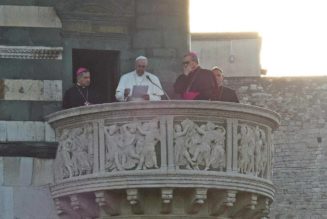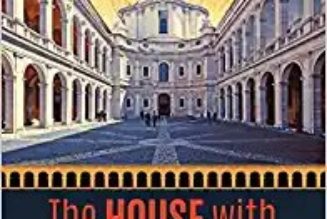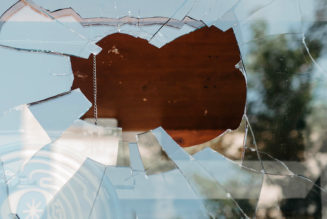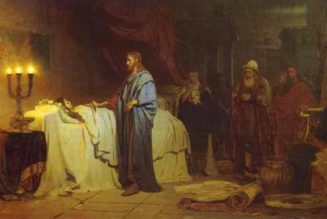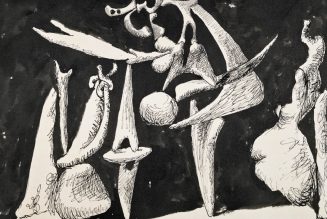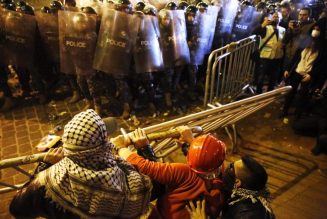Cardinal Robert Sarah delivered a speech to attendees of a sold-out event June 13 at The Catholic University of America in Washington, D.C., where he emphasized the dangers of “practical atheism,” calling it a great temptation in the Church today.
Practical atheism does not deny God or reject God outright, the cardinal said, but it removes God from the center of life. Criticizing the Church in Europe, Cardinal Sarah repeatedly warned of the “loss of the sense of the Gospel” which has permeated much of daily life in the West.

The temptation has even impacted Church leaders, tempting them to “dream of being loved by the world” rather than steadfastly opposing it, said the cardinal, who is prefect emeritus of the Holy See’s Congregation (now Dicastery) of Divine Worship and the Discipline of the Sacraments, and archbishop emeritus of Conakry, Guinea.
More than 350 people attended the lecture, which was sponsored by the California-based Napa Institute and the Catholic Information Center, a Washington bookstore and intellectual hub. The lecture was preceded by Mass in the Crypt Church at the Basilica of the National Shrine of the Immaculate Conception, which was attended by hundreds more, organizers told Our Sunday Visitor.
Cardinal Sarah’s address
In his address, Cardinal Sarah examined the contributions of Pope St. John Paul II, Pope Benedict XVI and Pope Francis in condemning practical atheism. He urged heightened vigilance against this “subtle state of mind,” which he dubbed “a dangerous disease.”
At one point, Cardinal Sarah highlighted the ongoing Synod on Synodality process in particular, questioning whether it genuinely reflects the Holy Spirit’s guidance.
“There are voices at the synod that are not speaking within the ‘sensus fidei,’” — the sense of the faith — the cardinal said. He elaborated, “Just because someone identifies as Catholic does not mean they are Catholic or have the ‘sensus fidelium.’” Those voices, Cardinal Sarah said, are leading to confusion and instability.
Critique of doctrinal changes and women’s ordination
Cardinal Sarah criticized the idea that the Church’s doctrine could be subject to change based on majority opinion, stating, “To move outside the content of faith both in belief and practice is to move outside the faith.” He warned that such an approach reduces faith to mere human opinion and leads to a cacophony of voices rather than a unified message.
The cardinal also addressed recent discussions within the Church about the possibility of ordaining women to Holy Orders, naming Cardinal Jean-Claude Hollerich, the synod’s relator general, who has expressed openness to women’s ordination. Cardinal Sarah reaffirmed Pope Francis’ clear stance that ordaining women is not possible but noted that confusion persists on this issue.

“This is the sort of thing that Catholics should believe is impossible,” Cardinal Sarah said, “and yet, we have a senior ranking official espousing an ideology that rejects stability of doctrine.” He emphasized the importance of maintaining doctrinal stability to prevent further harm to the Church and its members.
The cardinal stressed that the Church’s authority is not based on democratic principles but “on the authority of Christ himself, which he willed to pass on to men who (would be) his representatives until his definitive return.” To manifest that authority clearly, he echoed Pope Francis’ repeated calls for bishops and priests to live lives consistent with the Gospel, and to serve as credible witnesses to the faith.
Praise for the Church in the United States
In his concluding remarks, Cardinal Sarah praised the vitality of the Church in the United States, drawing parallels to the youthful and “heroic witness” of the African Church. The cardinal pointed to the witness of the African Church which “saved the Church from grave error” in the wake of “that misguided document ‘Fiducia Supplicans,” on blessings for people who are in same-sex relationships and other couples in “irregular situations.”
The cardinal urged the Church in the United States to also be a witness to the global Church, asking Catholics to embrace their responsibility and potential for significant impact.
“Imagine what could happen,” he said, “if America were to become home to an even more vibrant Catholic community.”
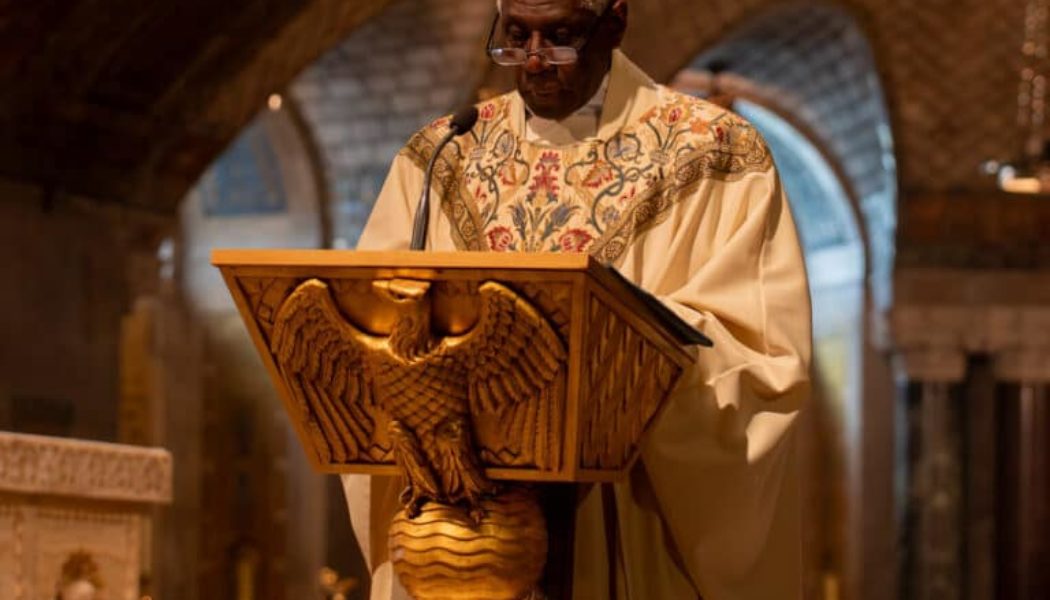
![Pope John Paul II’s Soviet spy [WSJ paywall]…](https://salvationprosperity.net/wp-content/uploads/2020/05/pope-john-paul-iis-soviet-spy-wsj-paywall-327x219.jpg)

